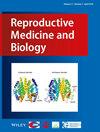评论“复发性妊娠丢失患者生化妊娠丢失的临床意义:来自整倍体胚胎移植的见解,最大限度地减少胚胎偏差”。
IF 3.3
3区 医学
Q2 OBSTETRICS & GYNECOLOGY
Reproductive Medicine and Biology
Pub Date : 2025-09-01
eCollection Date: 2025-01-01
DOI:10.1002/rmb2.12674
引用次数: 0
摘要
这篇评论论述了Kuwabara等人对整倍体胚胎移植后复发性妊娠丢失(RPL)患者的生化妊娠丢失(BPL)的研究。虽然他们的方法最大限度地减少了胚胎偏差并加强了母体因素评估,但对统计解释和潜在的确定偏差的关注限制了普遍性。尽管如此,本研究提出了关于将BPL纳入RPL诊断框架的重要问题。本文章由计算机程序翻译,如有差异,请以英文原文为准。
Comment on "Clinical Significance of Biochemical Pregnancy Loss in Recurrent Pregnancy Loss Patients: Insights From Euploid Embryo Transfers Minimizing Embryonic Bias".
This commentary addresses Kuwabara et al.'s study on biochemical pregnancy loss (BPL) in recurrent pregnancy loss (RPL) patients following euploid embryo transfers. While their methodology minimizes embryonic bias and strengthens maternal factor assessment, concerns regarding statistical interpretation and potential ascertainment bias limit generalizability. Nonetheless, this study raises important questions regarding the incorporation of BPL into RPL diagnostic frameworks.
求助全文
通过发布文献求助,成功后即可免费获取论文全文。
去求助
来源期刊

Reproductive Medicine and Biology
Multiple-
CiteScore
5.70
自引率
5.90%
发文量
53
审稿时长
20 weeks
期刊介绍:
Reproductive Medicine and Biology (RMB) is the official English journal of the Japan Society for Reproductive Medicine, the Japan Society of Fertilization and Implantation, the Japan Society of Andrology, and publishes original research articles that report new findings or concepts in all aspects of reproductive phenomena in all kinds of mammals. Papers in any of the following fields will be considered: andrology, endocrinology, oncology, immunology, genetics, function of gonads and genital tracts, erectile dysfunction, gametogenesis, function of accessory sex organs, fertilization, embryogenesis, embryo manipulation, pregnancy, implantation, ontogenesis, infectious disease, contraception, etc.
 求助内容:
求助内容: 应助结果提醒方式:
应助结果提醒方式:


